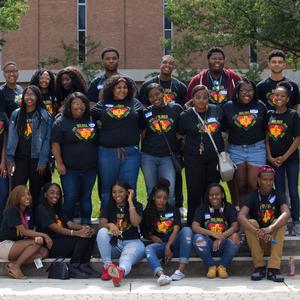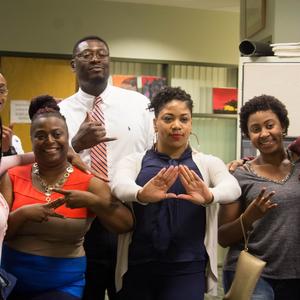About

The word Bolinga means love in Lingala, an African language. At the Bolinga Black Cultural Resources Center, we keep that as our focus. We provide special programs, activities, and student services that celebrate the diverse African cultural identities and foster lasting friendships in the university community. We offer programs that educate the broader community about black and African American culture. We also provide our students with a critical sense of belonging, opportunities for engagement in university life, and the resources, skills, and support necessary to achieve academic excellence and pursue rewarding careers after graduating.
What does the Bolinga Center offer?
- We create academically challenging and empowering educational experiences.
- We assist you in academic excellence through our events and personal recognition.
- We help you make connections with other students and helpful resources.
- We are building a supportive community for underrepresented students.
- We help recruit and retain students from underrepresented groups.
Social Media
Visit our social media sites to follow our events and updates.
Mission
First, we support, advocate for, and empower students of the African Diaspora in receiving excellent academic, personal, financial, and social experiences. Second, we assist faculty, staff, and members of the surrounding community in developing structures and strategies to promote and highlight African American history and culture.
Vision
Our vision is to become the premier organization that contributes to the success of every individual we encounter. We want to foster a deeper awareness and appreciation of African American history and culture by providing excellent programs, services, and experiences.
History
When the center was founded on Dr. Martin Luther King, Jr.'s birthday on January 15, 1971, its stated purposes were:
- to promote an understanding of the culture and heritage of black Americans;
- to make easily accessible, by housing in one central location, a variety of resource materials on the black experience;
- to encourage research about black people and aid in the resolution of problems that have resulted from racial discrimination and prejudice; and
- to work for the advancement of the black creative arts.




